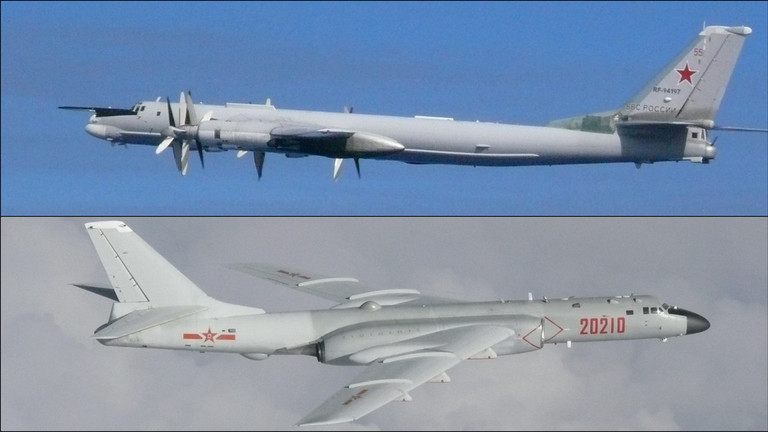Russia and China display strategic coordination in Asia-Pacific

Russian Tu-95 MS (above) & Chinese Xian H-6 strategic bombers. File photo
An exciting new template has appeared in the geopolitics of the Asia-Pacific last week when Russia’s Aerospace Force and China’s Air Force carried out their first-ever joint air patrol in the region.
Steadily and imperceptibly but profoundly, the regional alignments are transforming. Russia and China routinely claim that their entente is neither a military alliance nor is directed against any third country. Yet, the alchemy of that relationship is undergoing a huge transformation, stemming out of a conscious decision by their top leaderships.
The so-called joint patrol last Tuesday involved Russia’s Tu-95MS strategic bombers and the H-6K aircraft on China’s part. The Tupolov Tu-95MS (which NATO calls the ‘Bear’) is a is a large, four-engine turboprop-powered strategic bomber and missile platform to carry the new Russian Kh-101/102 stealth cruise missile, which uses use radio-radar equipment and target-acquiring/navigation system based on GLONASS. The ‘Bear’ used to be a veritable icon of the Cold War as it performed a maritime surveillance and targeting mission for other aircraft, surface ships and submarines and a versatile bomber that would deliver the thermonuclear bomb.
China’s H-6K is a heavily redesigned version of the ‘Bear’, capable of carrying air launched cruise missiles. According to the Pentagon, the bomber gives China a “long-range standoff offensive air capability” with precision-guided munitions. Russia and China deployed two each of the Tu-95MS and H-6K strategic bombers in the air patrol on Tuesday.
According to a Russian Defence Ministry statement, the air patrol was undertaken on the “planned route over the Sea of Japan and the East China Sea.” The statement added that the joint air patrol was intended to strengthen Russian-Chinese relations and raise the level of interaction between the armed forces of both countries, in particular, to expand their capabilities for joint operations.
Significantly, the Russian statement said that another goal of the joint patrol is “strengthening global strategic stability.”
…click on the above link to read the rest of the article…